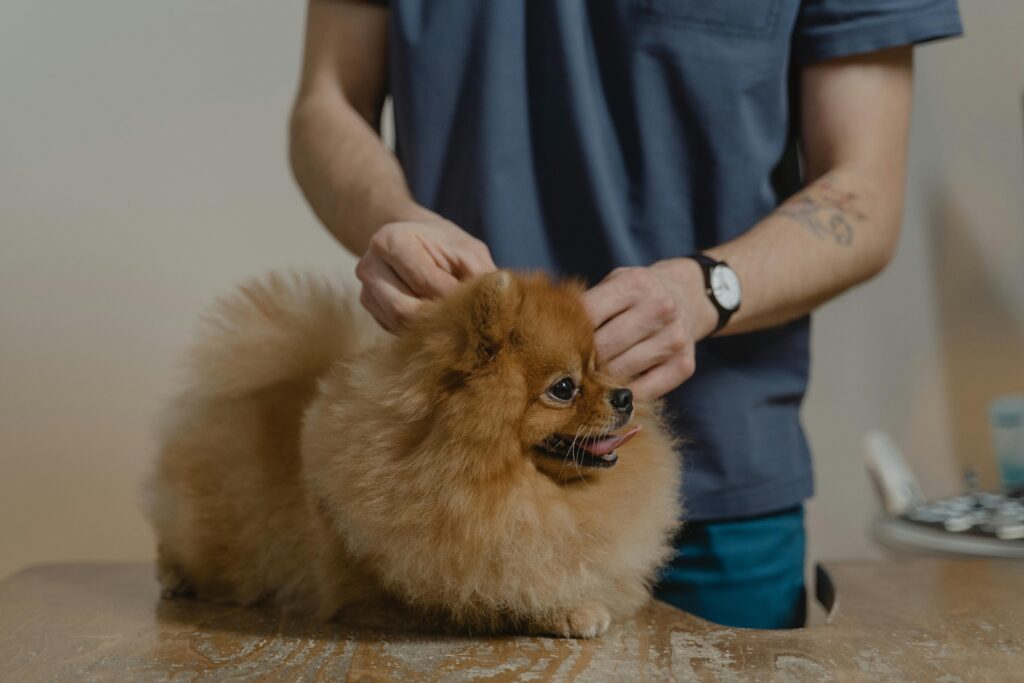Understanding Senior Pet Care
Recognizing the Signs of Aging in Pets
- When it comes to senior pet care, it’s crucial to be able to recognize the signs of aging in our beloved furry companions. Some common signs that indicate your pet is entering their golden years include decreased mobility, changes in appetite, increased sleeping hours, and potential hearing or vision loss. As a pet owner, I suggest being observant of any unusual behaviors and scheduling regular check-ups with your veterinarian to address any age-related issues promptly.
Adjusting Your Home for Senior Pets
- Creating a safe and comfortable environment for senior pets is essential for their well-being. Simple adjustments in your home can make a significant difference in enhancing their quality of life. Consider providing easy access to food and water bowls, placing soft bedding in warm areas, and installing ramps or steps to help them navigate around the house effortlessly. Additionally, adding non-slip surfaces and ensuring adequate lighting can help prevent accidents and support your senior pet’s independence.
Nutritional Needs for Older Pets
As a pet owner, I understand the significance of meeting the nutritional needs of my aging furry companion. Here are key aspects to consider when it comes to the diet of older pets.
1. Benefits of Specialized Senior Pet Diets
When it comes to senior pets, specialized diets tailored to their age can bring about significant benefits. These diets are designed to address the changing nutritional requirements of aging pets. They typically contain lower calories to account for reduced activity levels while ensuring essential nutrients are still provided. Specialized senior pet diets also often contain ingredients that support joint health, cognitive function, and overall vitality. By switching to a specialized senior pet diet, I can help my aging pet maintain a healthy weight, support their immune system, and enhance their overall well-being.
2. Supplements for Aging Pets
In addition to a balanced diet, supplements can be a valuable addition to an aging pet’s nutritional regimen. As pets age, their bodies may require additional support to maintain optimal health. Supplements such as Omega-3 fatty acids can promote joint health and reduce inflammation, benefiting senior pets with arthritis or other age-related joint issues. Probiotics are another beneficial supplement for older pets, as they can aid in digestion and support gut health, which is essential for overall well-being. Before introducing any supplements to my pet’s diet, I always consult with my veterinarian to ensure they are safe and appropriate for my furry friend’s individual needs.
Health Care Considerations

Regular Veterinary Check-ups
When it comes to keeping your senior pet healthy, regular veterinary check-ups are essential. I make sure to schedule check-ups at least twice a year for my aging furry companion. These visits allow the vet to monitor any changes in my pet’s health, detect early signs of potential issues, and recommend appropriate preventive measures. By staying proactive with veterinary visits, I can address any health concerns promptly and ensure that my pet receives the necessary care.
Managing Chronic Conditions in Senior Pets
As pets age, they may develop chronic conditions that require ongoing management. In my experience, it’s crucial to work closely with the vet to create a tailored care plan for my senior pet’s specific needs. Whether it’s arthritis, diabetes, or kidney disease, managing chronic conditions involves a combination of medication, diet modifications, and lifestyle adjustments. By following the vet’s recommendations and staying consistent with treatment plans, I can help improve my pet’s quality of life and ensure they stay comfortable as they age.
Dental Health for Aging Pets
Dental health is often overlooked but plays a significant role in the overall well-being of senior pets. I’ve learned that dental problems can lead to other health issues, such as heart disease and infections, making regular dental care crucial for older pets. To maintain my pet’s dental health, I provide dental treats, toys, and regular teeth cleaning at home. Additionally, I schedule professional dental cleanings with the vet to prevent tartar buildup and address any potential dental issues early on. Taking care of my pet’s dental hygiene is an important part of their overall health care routine as they age.
Exercise and Activity for Senior Pets
Adapting Exercise Routines for Older Pets
- As a pet owner, I understand the importance of adapting exercise routines for older pets. While exercise is crucial for maintaining their mobility and overall health, it’s essential to modify activities to suit their age and physical condition. For example, instead of high-impact exercises like running or jumping, gentle activities such as short walks or swimming can be more suitable for senior pets. I recommend incorporating these activities into their daily routine to help them stay active and prevent muscle stiffness.
The Importance of Mental Stimulation
- In caring for senior pets, I recognize the significance of providing mental stimulation to keep their minds sharp and engaged. Just like physical exercise, mental stimulation is crucial for maintaining their cognitive function and overall well-being. Interactive toys, puzzle feeders, and short training sessions are excellent ways to keep senior pets mentally stimulated. These activities not only provide mental enrichment but also strengthen the bond between pet and owner. By prioritizing mental stimulation, pet owners can help their senior pets lead fulfilling and vibrant lives in their golden age.
Comfort Measures for Aging Pets
- In caring for our senior furry companions, it’s crucial to focus on comfort and well-being. Here, I’ll delve into pain management strategies and creating a cozy living space to ensure our aging pets thrive in their golden years.
Pain Management Strategies
When it comes to our elderly pets, managing pain effectively is key to maintaining their quality of life. As a pet parent, I prioritize identifying signs of discomfort in my aging pet, such as limping, difficulty getting up, or changes in behavior. By promptly recognizing these indicators, I can consult my veterinarian to explore suitable pain management options tailored to my pet’s needs.
Given that arthritis commonly affects aging pets, I ensure that my furry friend receives prescribed medications, supplements, or joint care treatments recommended by my vet. These measures help alleviate pain and improve mobility, allowing my senior pet to move around comfortably and engage in daily activities with ease.
As part of my proactive approach to pain management, I also incorporate gentle exercise routines into my pet’s daily regimen. Activities like short walks and hydrotherapy sessions are beneficial for easing joint stiffness and enhancing muscle strength, contributing to my pet’s overall comfort and well-being.
Creating a Comfortable Living Space
Crafting a serene and comfortable environment for my senior pet is essential in promoting relaxation and minimizing stress. To achieve this, I ensure that my pet’s living space is cozy, accessible, and tailored to meet their aging needs.
In my pet’s designated area, I provide soft bedding or orthopedic mattresses to support their joints and offer a warm, inviting space for resting. Additionally, I keep the environment clutter-free and secure, reducing the risk of falls or injuries for my senior pet as they move around their living space.
Moreover, I maintain a comfortable room temperature to prevent discomfort and ensure that my pet’s food and water bowls are easily accessible. By creating a peaceful and nurturing living space, I aim to enhance my furry companion’s overall comfort and well-being during their golden years.
By implementing these comfort measures and strategies, I can enhance my senior pet’s quality of life and provide them with the care and support they need to age gracefully and enjoy their golden age to the fullest.
The Emotional Bond
Preparing for the Inevitable
As a pet owner, I understand the emotional bond shared with our furry companions deepens as they age. It’s essential to prepare emotionally for the inevitable changes that come with your pet’s advancing years. While the aging process may bring challenges, staying mentally prepared can help you navigate this journey with grace and understanding.
Celebrating the Golden Years with Your Pet
One of the most rewarding experiences as a pet owner is celebrating the golden years with your beloved companion. It’s a time to cherish the memories you’ve created together and to make the most of each moment. By prioritizing your pet’s emotional well-being and fostering a loving environment, you can ensure that their senior years are filled with happiness, comfort, and the warmth of your unwavering bond.


